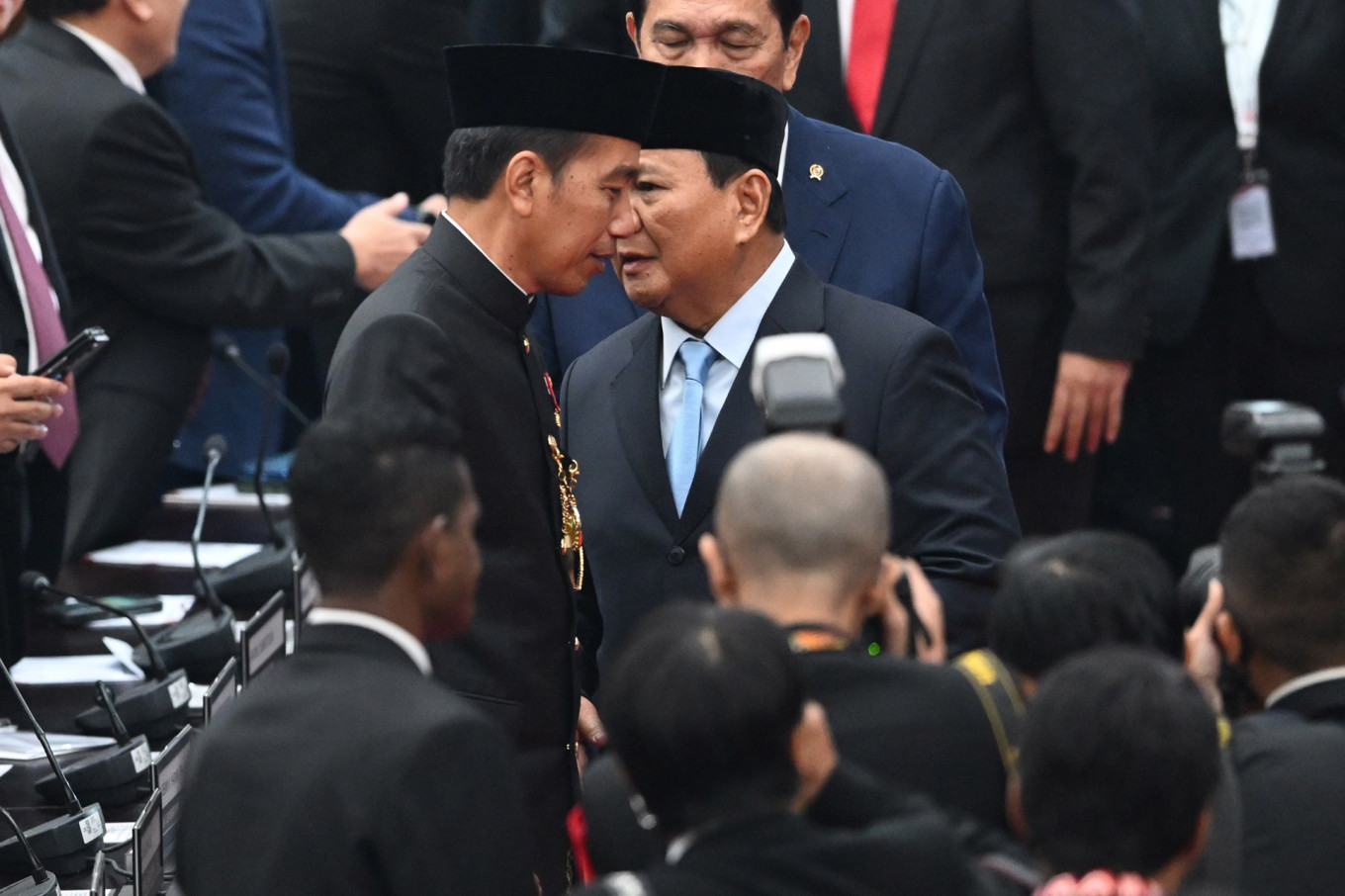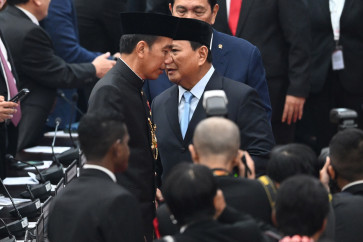Popular Reads
Top Results
Can't find what you're looking for?
View all search resultsPopular Reads
Top Results
Can't find what you're looking for?
View all search resultsPower consolidation and reorganization à la Jokowi
As president, Jokowi has successfully consolidated his power by ensuring that coalition parties remain loyal through the distribution of economic resources.
Change text size
Gift Premium Articles
to Anyone
O
ver the course of a decade, from 2014 to the end of his term in 2024, President Joko “Jokowi” Widodo has overseen significant transformations in Indonesia’s political power structure. Jokowi, initially known as a grassroots figure who rose from humble beginnings, has successfully built a political force that not only endures but also dominates.
Behind this achievement lies a meticulous and systematic strategy of power consolidation, which has drawn the attention of political analysts both domestically and internationally.
Jokowi began his administration with a foundational strategy rooted in the principle of broad coalition-building. By adopting an approach reminiscent of Lijphart's "presidential coalition" model, Jokowi embraced major political parties such as the Indonesian Democratic Party of Struggle (PDI-P), the NasDem Party and the National Awakening Party (PKB). Later on, almost all parties joined his ruling coalition.
Although his relationship with the PDI-P has since become strained, the large coalition, known as the Onward Indonesia Coalition (KIM) Plus, remains aligned with the outgoing president. This approach was not merely to secure legislative support but also to minimize potential opposition that could threaten the stability of his administration.
The coalition Jokowi built became not only the foundation of political power but also a means of reorganizing political forces in Indonesia. Political analyst William Liddle once noted that "an oversized coalition has the potential to create power that is difficult to oppose". This view was seemingly well-adopted by Jokowi, whose grand coalition has rendered the opposition increasingly weak and nearly ineffective.
In political theory, appointing trusted individuals to strategic positions is a classic move to consolidate power. Jokowi applied this strategy by placing loyal and professional figures in key roles. This aligns with the concept of "patronage politics", where a leader ensures the continuity of power by appointing individuals with personal or political loyalty.
One of the most prominent examples is the appointment of Luhut Binsar Pandjaitan as minister. Luhut, the current coordinating maritime affairs and investment minister, is known as one of Jokowi’s most trusted allies and holds a pivotal role in Jokowi’s flagship infrastructure programs. This demonstrates how Jokowi uses strategic appointments to control the national agenda.



















